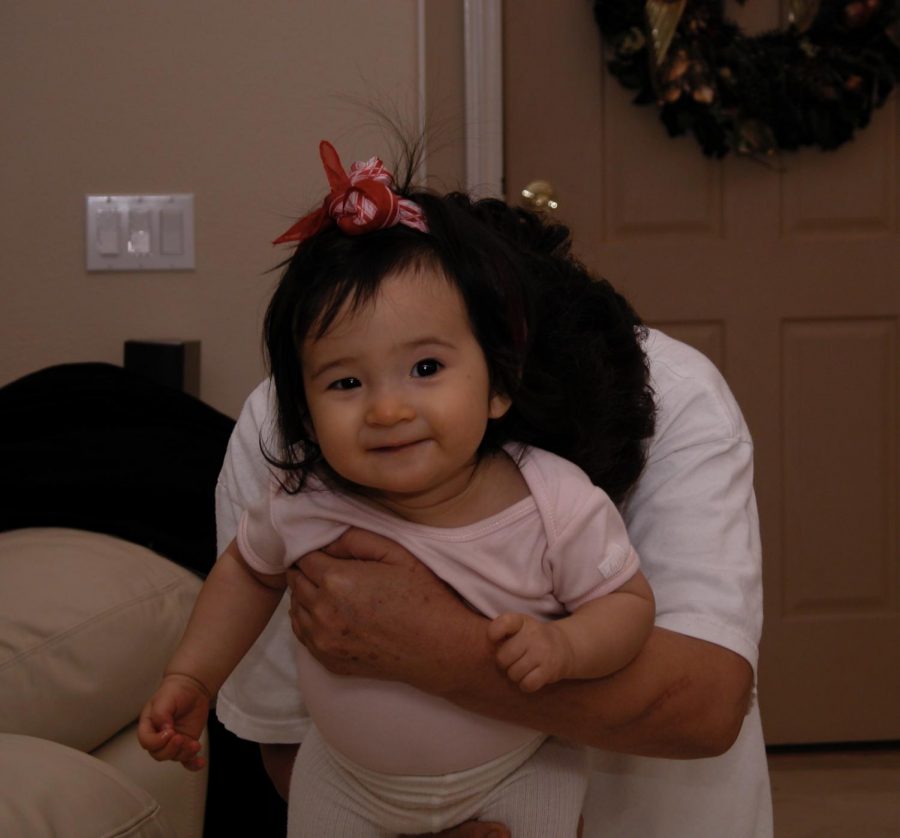People are complex. Even if their skin isn’t white.
Commentary: The dangers of deciding who a POC is or should be based on their race
Carberry
I identify as biracial with Korean and White descent, evidenced here by my one slightly smaller eye which hadn’t developed a double eyelid yet.
I live in a biracial household where my dad is White and my mom is Korean. Throughout my life, I’ve spent much more time with the Korean side of my family, so I view it as a big part of my cultural and racial identity.
I’m not sure how “Asian” I look; I’ve been thought to be Hawaiian and Native American. (Side note: Don’t guess someone’s race ‘cause it’s kinda awkward if you’re wrong.) It’s probably safe to say that my friend who’s fully Chinese looks more “Asian” than I do. But in our case, I engage more frequently with East Asian culture since she was adopted into a White family. All this despite the fact that some may think I’m less “Asian” since I’m only half Korean and may not appear as “Asian.”
Time and time again, Whites are the only group who are deemed to be complex human beings by the media and society. Obviously (at least I hope it’s obvious to ya’ll), this is absurd.
As we all know by now, 29-year-old Jacob Blake was shot in the back seven times by a White police officer in Kenosha while his three young sons watched. The shooting left him paralyzed from the waist down.
Two days later on Aug. 25, 17-year-old Kyle Rittenhouse opened fire on Black Lives Matter protestors, killing two and injuring another. But where Blake was simply leaning into his car when he was shot, the police didn’t bat an eye when Rittenhouse strode past them brandishing an AR-15.
After these events, the media predictably highlighted Blake’s past faults and shortcomings while they mourned Rittenhouse’s wasted “potential.”
Too often, non-White racial groups are generalized to be viewed as one entity where those who share the same race are basically the same. Which makes no sense.
This mindset severely hinders us from really knowing and understanding one another. Because of these stereotypes that have been ingrained into our psyche, we think we know exactly what a Black person is like, or an Asian person, or a Latinx person, and so on.
But news flash, we’re not all the same. And how one looks does not convey how “Asian” or “Black” someone might be. I’m a firm believer that culture and experiences have a more significant impact on the outlook and values we develop than skin color. Being a certain race does not necessarily correlate to a certain culture or personality.
Race and culture are frequently thought to be intertwined as one and the same. And while there are certainly times where they do seem to flow together seamlessly, I don’t think your racial makeup dictates the culture you experience and live with.
When you look at my dad, you would probably just see some White guy. Yet, he’s greatly embraced Korean culture in our family. He’s traveled to South Korea, enjoys the food and company of my mom’s side of the family (even if some of them don’t speak English), and was chill with dressing me in a hanbok for my first birthday. My siblings and I even call him the Korean word for dad (아빠) instead of just “dad.”
Now, I don’t want to be misunderstood here. White privilege is still certainly a real thing. Just because you learn about and engage with other cultures doesn’t mean your skin color stops affecting your day-to-day life. There are aspects of being a POC that White people will never understand.
These constructs that place extensive value on one’s physical racial appearance were established – long before any of us existed – for the purpose of dividing us. The ever-present effects of these constructs cannot be ignored, but my hope is that we all can reach a point where our identity below the surface is more important. And I think if we were to take more time to understand and engage with one another’s culture(s), the color of our skin would grow to hold less weight and be less divisive.
If we free ourselves from the idea that our race dictates who we and others become, I believe this would create more room for us to empathize and connect with one another. And it’s such a connection that is desperately needed in our world right now.







































